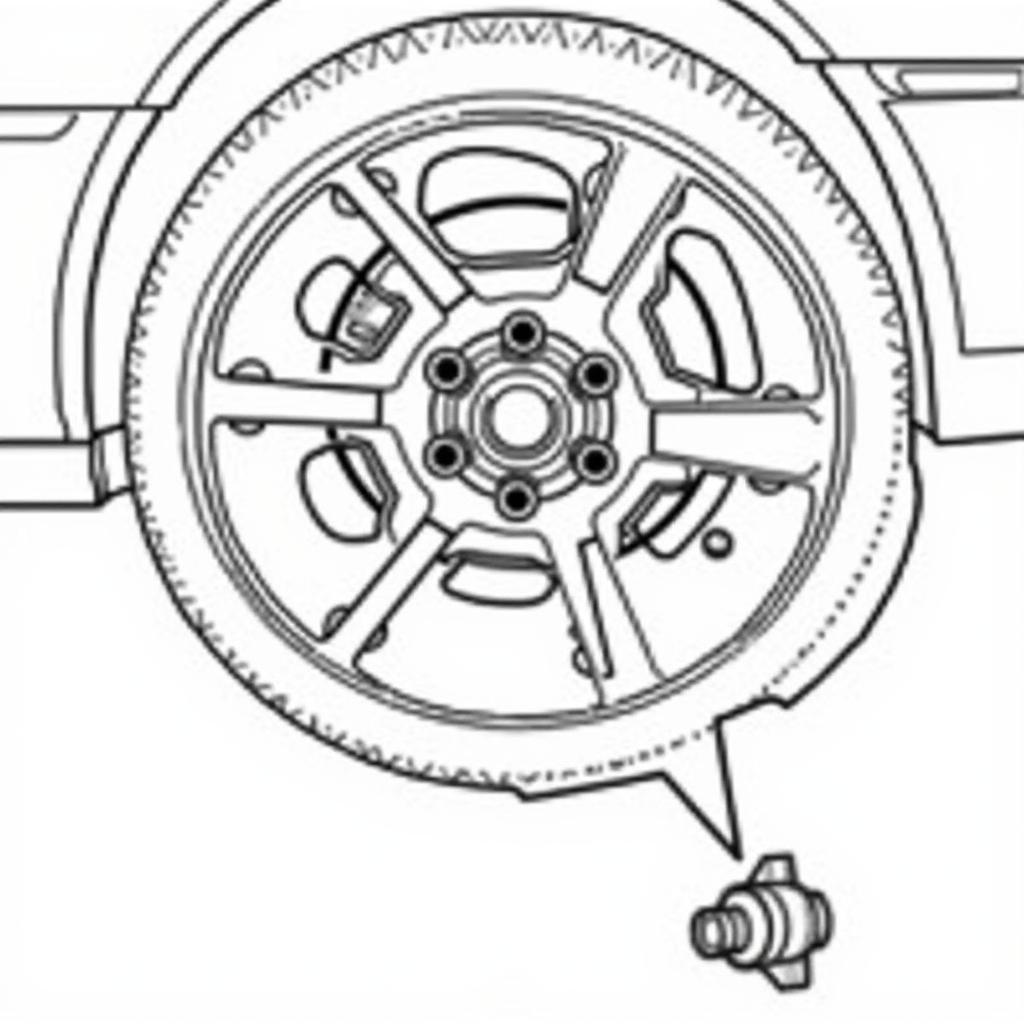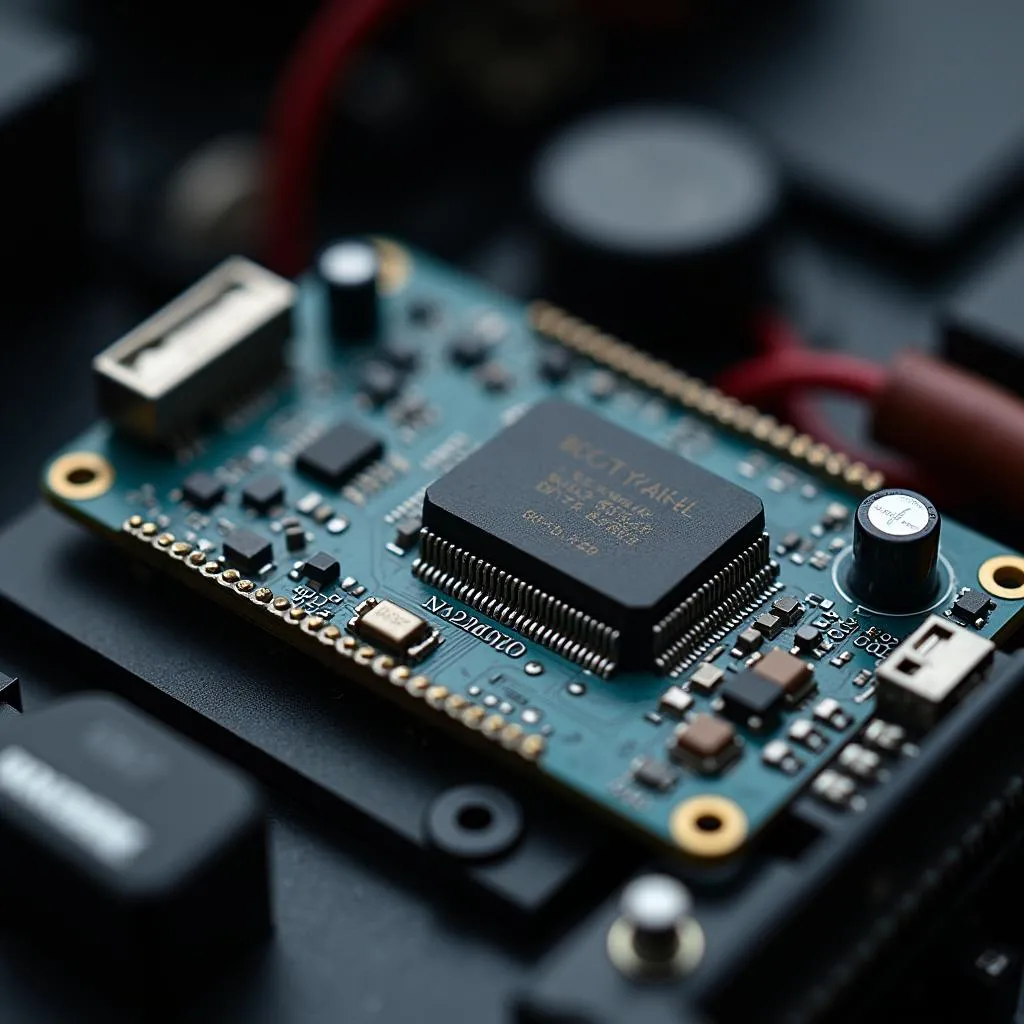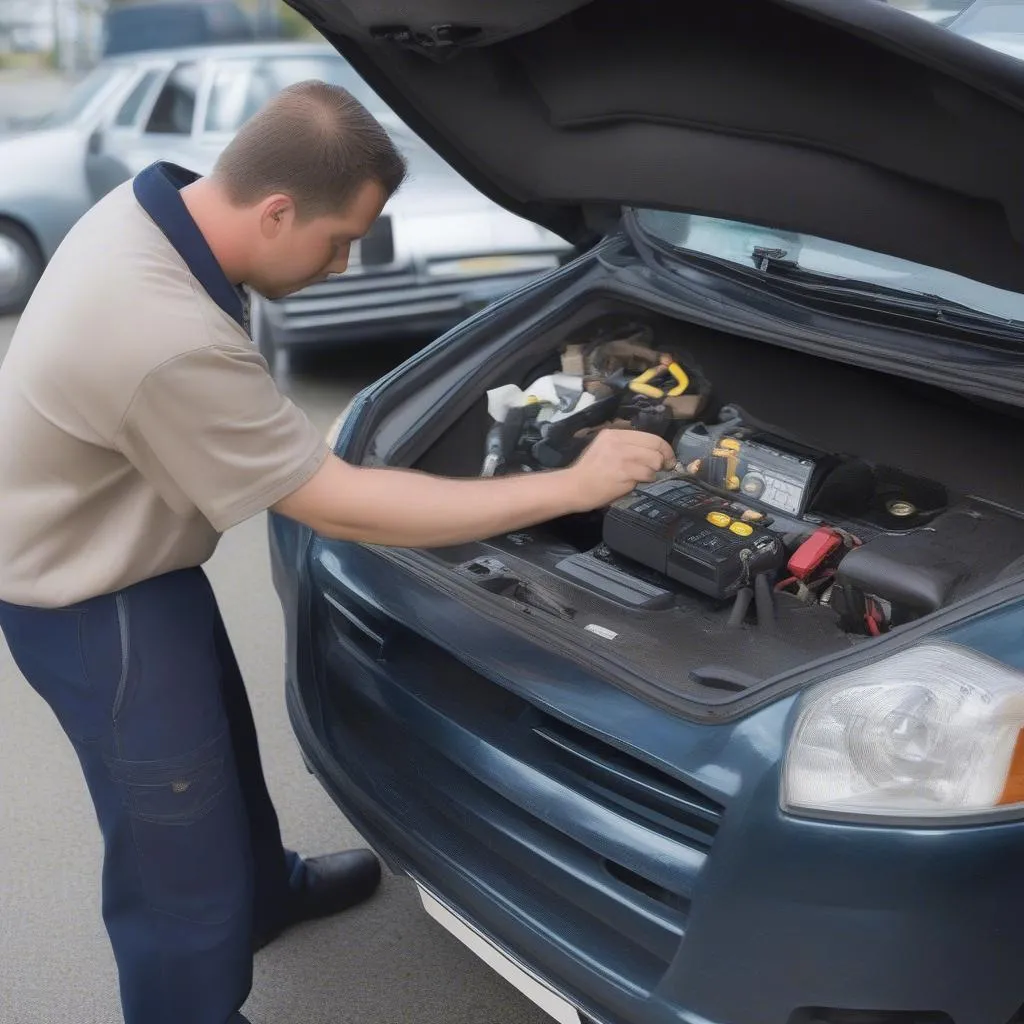If you’re driving a 2002 Toyota Camry and your dashboard lights up like a Christmas tree with brake-related warnings, you’re not alone. This comprehensive guide dives deep into those flashing icons, deciphering their meaning and outlining the steps you can take to address them.
Understanding Your 2002 Camry’s Brake Warning Lights
Your Camry’s dashboard is equipped with a series of warning lights designed to alert you of potential issues. When it comes to your brakes, three main lights demand attention:
- Brake System Warning Light: This light, often featuring an exclamation mark within a circle surrounded by parentheses, signals a general problem within your brake system.
- Anti-lock Brake System (ABS) Warning Light: Displayed as “ABS,” this light indicates an issue with your anti-lock braking system, which helps prevent wheel lockup during hard braking.
- Parking Brake Light: This light, often depicting a circle with a “P” inside, illuminates when your parking brake is engaged. However, if it stays on even after releasing the brake, it suggests a problem.
Common Causes of Brake Warning Lights in a 2002 Camry
Several factors can trigger these warning lights, ranging from simple fixes to more complex mechanical issues.
1. Low Brake Fluid Level
One of the most common culprits is low brake fluid, which can trigger the Brake System Warning Light.
Troubleshooting Tip: Check your brake fluid level by locating the reservoir under the hood. If it’s low, add the appropriate brake fluid, but remember to address any underlying leaks that might be causing the depletion.
2. Worn Brake Pads
Your brake pads are designed to wear down over time. When they reach a certain thinness, a sensor will trigger the Brake System Warning Light, indicating it’s time for a replacement.
Expert Insight: “Ignoring worn brake pads is like driving with scissors near your tires – it’s a recipe for disaster,” cautions John Smith, a seasoned automotive technician with over 20 years of experience.
3. Faulty ABS Sensor
A malfunctioning ABS sensor can disrupt the system’s ability to monitor wheel speed, leading to the illumination of the ABS Warning Light.
Troubleshooting Tip: A mechanic can diagnose a faulty sensor using a scan tool. Replacing the sensor usually resolves the issue.
 ABS Sensor Location
ABS Sensor Location
4. Stuck Parking Brake Cable
A parking brake cable that’s stuck or corroded can prevent the parking brake from fully disengaging, causing the Parking Brake Light to stay on.
Expert Insight: “Regularly using your parking brake, even when parked on a flat surface, can help prevent cable sticking,” advises Jane Doe, an automotive engineer specializing in braking systems.
Advanced Diagnostics: When DIY Isn’t Enough
While some brake light issues are straightforward, others require a more in-depth approach. If your warning lights persist or you suspect a more complex problem, seeking professional diagnostics is essential.
Remote Diagnostics and Software Solutions
Modern technology has revolutionized car repair, offering remote diagnostic services that can pinpoint issues without you even leaving your driveway.
How it Works:
- Connect your car to a specialized diagnostic tool.
- Share the data with a remote technician.
- The technician analyzes the data to identify the problem.
- They can then guide you through repairs or even perform software updates and programming remotely to resolve the issue.
Benefits:
- Convenience of at-home diagnostics.
- Expert analysis and solutions.
- Potential for faster and more cost-effective repairs.
Conclusion: Don’t Ignore Brake Warning Lights
Ignoring brake warning lights in your 2002 Toyota Camry is like hitting the snooze button on a fire alarm – dangerous and potentially costly. By understanding the different warning lights, their common causes, and the potential solutions, you can address brake issues promptly and ensure your safety on the road.


